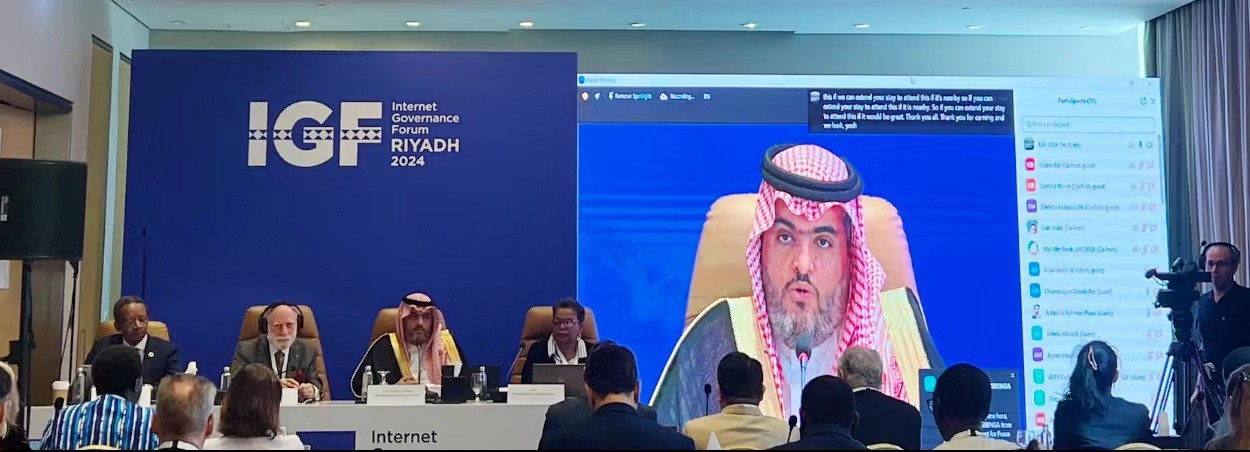Saudi Arabia is set to host the United Nations’ Internet Governance Forum in Riyadh at the end of this year, from the 15th to the 19th of December. The United Nations’ division was created as a multistakeholder platform facilitating the discussion of public policy issues pertaining to the internet, in December, the program will be shaped along four main themes:
- Harnessing innovation and balancing risks in the digital space
- Enhancing the digital contribution to peace, development, and sustainability
- Advancing human rights and inclusion in the digital age
- Improving digital governance for the Internet We Want
However, there is an underlying hypocrisy in the hosting of this event by the Kingdom of Saudi Arabia, as the country is notorious for its lack of respect for basic international human rights, scoring 8 out of 100 in the 2023 Freedom House report – classified as “not free”. Indeed, its absolute monarchy restricts almost all political rights and civil liberties. Furthermore, Saudi Arabia’s 2030 Vision aims to increase the country’s sustainability and green initiatives, along with increasing the government’s non-oil revenue, amongst many other goals. These initiatives have been heavily criticized, projects such as NEOM have been under scrutiny for greenwashing, but also as seen as “delusional”. Therefore, at least two out of four of the main themes of the Internet Governance Forum go against Saudi Arabia’s reality, being a country that is not advancing human rights and inclusion, neither contributing to peace and sustainability; presenting a true example of whitewashing by hosting the Forum.
Focusing more on digital rights, there is concrete evidence that the country uses social media platforms to police political discourse, attack dissidents, and suppress influential voices. Authorities maintain extensive censorship and surveillance systems, supporting online networks of bots and accounts that spread pro-government messages and target perceived dissenters, particularly the infiltration of X, formerly known as Twitter, spreading propaganda in support of Saudi Arabia. The goal of these domestic manipulation operations is to fabricate an appearance of widespread support for the state and its leaders while silencing dissenting voices, thereby eroding the right to information and democratic principles. In fact, Saudi Arabia is the second country after China with the highest number of removed accounts by Twitter. Activists, journalists, government employees, and other professionals report a climate of fear, compelling many to self-censor or participate in pro-government discourse online. Those perceived to voice dissent online, including critics and activists, face severe repercussions such as harassment and arrest.
The overall lack of digital rights makes the kingdom an unsuitable host for the Internet Governance Forum, which relies on open dialogue and freedom of expression to address global internet governance issues effectively.
To add fuel to the fire, Saudi Arabia’s investments in technological projects only increase its opportunity to abuse even more of censorship and data surveillance. Indeed, the NEOM project in Saudi Arabia raises significant concerns about digital rights and privacy abuse due to its extensive surveillance infrastructure, which involves ubiquitous monitoring through cameras, sensors, and biometric data collection, leading to constant tracking of residents and visitors without their consent. The project aims to collect vast amounts of personal, financial, and health data, yet lacks robust data protection laws and clear regulations on data management, posing risks of misuse and unauthorized access.
Adding on to this, Tech Giant Google has installed a new Cloud Region in the Kingdom, Google Cloud services facilitate small to medium-sized businesses’ operations, so they don’t have to own their own data centers and servers. This project is a joint venture with Aramco, a Saudi state-owned oil company, which causes concern as it allows the state to access even more mass quantities of personal data: the collaboration between powerful tech companies and autocratic regimes such as Saudi Arabia facilitates the opportunity for further national digital repression.
The hosting of the Internet Governance Forum is a true example of whitewashing, illustrating the pure hypocrisy of the country’s blatant disregard for digital rights, let alone basic human rights, along with its deluded façade of protection of human and digital rights and peace promotion.





